Bishop Joseph Strickland of Tyler, Texas is one of the most popular Roman bishops on the Internet. His Twitter following alone is over 128K. On his Twitter timeline, he has been hard on Pope Francis, increasingly so as of late. Strickland even questioned the Pope’s fidelity to the Christian Faith in a May 12 Tweet, “I believe Pope Francis is the Pope but it is time for me to say that I reject his program of undermining the Deposit of Faith. Follow Jesus.” In orthodox (traditional) Roman Catholic circles, he is often referred to as “America’s Bishop”. Bishop Strickland recently had the temerity to travel to Los Angeles and lead a protest rally against the Dodgers for honoring the Sisters of Perpetual Indulgence, an anti-Catholic drag group, at the team’s annual “Pride Night” game.

For Pope Francis, that seems to have been the last straw. The Vatican has now opened an investigation into Bishop Strickland starting with a multi-day “apostolic visitation”.
The Pope is investigating Tyler, Texas Bishop Joseph Strickland after his leading the prayer against the LA Dodgers and for his critical statements of the Pope’s liberalizing agenda.
Pray for him: @Bishopoftyler pic.twitter.com/DeCWsBuwAr
— Dr Taylor Marshall™️ (@TaylorRMarshall) June 26, 2023
The “visitation” was conducted by Bishop Dennis Sullivan of Camden, New Jersey, and former Bishop Gerald Kicanas of Tucson, Arizona. Kicanas is a well-known liberal, with ties to pro-homosexual groups, a past linked to clerical sex abuse, and a soft spot for abortion. As head of Catholic Relief Services, Kicanas was caught funding major pro-abortion groups, such as Population Services International, a marketer of abortion drugs in the developing world.
What does Kicanas being one of the men sent to investigate Bishop Joseph Strickland mean to you? For many traditionally-minded people, that fact alone eliminates any question as to where the Papacy stands on the moral issues of our day.
One traditionalist Catholic posted this online, “This move by the Vatican means not one moral activist bishop is safe. The good bishops will be deposed or silenced, and the evil bishops will rule unopposed.”
The fruits of centralization of power are, yet again, quite bitter for the Roman Catholic faithful. What will happen to Bishop Joseph Strickland? Whatever the Pope decides. Who can do anything about it? No one. What will his supporters do if the Pope throws him in the dustbin, or so loads him with sanctions as to make him ineffective? They can leave the RC (Orthodoxy is a good choice) or they can talk themselves into continuing as Roman Catholics through various coping mechanisms. After all, if you can bemoan Pope Francis’ various innovations against the Deposit of the Faith, yet still believe that your salvation depends on being in communion with him, then your brain is already elastic enough to stretch around pretty much anything.

As currently structured, what is happening to Bishop Joseph Strickland is not possible within the Orthodox Church. Bishop Strickland is not being investigated by his local synod of Roman Catholic Bishops for credible accusations of an actual crime, heresy, or a misuse of his office. Rather, his investigation was ordered by a remote, unaccountable, supreme pontiff who can officially be judged by no one.
Nothing like the Papacy exists within Orthodoxy. There is no “universal bishop”, though there are efforts underway to create one. Despite those efforts, however, the Orthodox Church is still organized into local synods which govern themselves. The Patriarch of Romania cannot investigate and discipline a Serbian Bishop. The Patriarch of Serbia cannot investigate and depose a Russian bishop. The same demarcation occurs between “jurisdictions” in the West. The Orthodox Church in America synod (which is self-governing) cannot investigate and depose a bishop in the Antiochian Archdiocese, for example.
There are some quirks to this system of decentralized authority. In some Orthodox jurisdictions in the West, the local bishops don’t really function as a true synod. Under such conditions, a foreign synod or hierarch could take unilateral action against an Orthodox bishop or priest subject to their jurisdiction. This has happened before, most recently in the Greek Archdiocese. These cases can sometimes be quite unjust, leaving local Orthodox Christians scratching their heads and venting their frustrations at being controlled by a remote, “old world” hierarchy. Such situations, however, are the exception within Orthodoxy and not the norm.
God is perfect. The Church is God’s Kingdom. But it is run by all-too fallible men who are themselves patients in a hospital for sinners. Among the hierarchy and clergy, as long as this world endures, there will be scandals, mistakes, pernicious outside influences, and even outright infidelity to the Faith Once Delivered to the Saints. However, the decentralized structure of the Orthodox Church works to keep such issues contained. Conciliarity, among bishops and independent Churches, restrains innovation and usually keeps bad hierarchs in one place from expanding their evil elsewhere.
One of the best examples of how Orthodoxy’s decentralization prevents innovation was written by Rabbi David Fox Sandmel in the context of evaluating Jewish – Orthodox relations. Many Jews object to Orthodox Holy Week hymns concerning the 1st Century Jews and their responsibility for the Crucifixion. Rabbi Sandmel feels the same, and has a vested interest in those hymns changing. However, he is honest about how difficult changing anything in the Orthodox Church can be. In the quote below, look at how he contrasts the difficulty of changing hymnography within the Orthodox Church with how easily similar hymns were changed in the Roman Catholic Church:
For Jews engaging with Orthodox Christians, it is important to remember that the first rule of interreligious dialogue is allowing “others” to define themselves. That means being especially attentive to the ways in Orthodox Christians differ from the Western churches with which Jews are most familiar. It requires understanding, inter alia, not only theological differences, but also the “ecosystem” of the Orthodox Church, autocephaly and how decisions are made, and the role of the patriarchs. While Pope John XXIII could order a change in the Good Friday liturgy, that is simply not how it works in Orthodoxy. Expecting Orthodox Christians to behave like Roman Catholics would not be a constructive strategy.
Thank you Rabbi, well stated. The Orthodox Church has a fundamentally different mindset than the Roman Church, and that has kept our Orthodox Faith pure over the last two millennia. No one can shove changes down our throats, though more than one Robber Council / Patriarch / Emperor has tried. No one has the power, the way Francis does, to conduct a “reign of terror” against faithful bishops on a global scale.
Good for us that Our Lord left us a Church so suited to preserving the Faith. However, before we Orthodox pat ourselves on the back too much, we need to remember something very important. There are powerful subversives within the Orthodox Church trying to transform her along modernist, globalist lines. They are well-funded and often occupy positions of authority within the Church.
Their primary tactic has been to subvert the Church quietly from within. The subversives use their connection to funding and power to publish heretical research (which is often presented as just “asking questions” or “seeking dialogue”), secure teaching positions for themselves and their followers (particularly in the training of future priests), present themselves as “official Orthodox voices” for media consumption, and align themselves with various governments around the world. We covered many of the most noted subversives in this article, and detailed some of their major funding sources here. As with Transgenderism in society at-large, this assault on Orthodoxy is a top-down revolution, though one largely (up until recently) conducted within the form.

Such a “long march through the institutions” has been very effective for Progressives in many areas (academia, government, major corporations, foundations, non-profits, etc.) Orthodoxy, however, has proven much more difficult to co-opt from within. That darned decentralized nature makes it tough to spread heresy quickly. Further, Orthodoxy is currently being overrun with converts who are fleeing the wreckage “Progressive” Christianity has made of other Christian bodies. They have seen what happens when a “church” embraces the LGBTQ+ agenda, female ordination, feminism, and Woke politics. Many of these refugees feel that the Orthodox Church is their last haven of True Faith on this Earth. They are in no mood to quietly abide her ruination.
I cringed so hard my face turned inside out pic.twitter.com/J5weKaeZxT
— Joel Berry (@JoelWBerry) June 28, 2023
So gains for the subversives are uneven, reversible, and hard won. Meanwhile, Pope Francis is building the ecumenist, progressive Church they dream of. The Catholic traditionalists are marginalized. The Latin Mass is on the road to being fully banned. Even a solidly orthodox, popular Catholic bishop such as Strickland is not safe from the wrath of the Progressive Vicar of Christ. Orthodox “Progressives” see what centralized power can do to make all their dreams come true, and they want in.
This is the reason the Church needs some kind of transnational global primate (not monarch, as Vatican I put it) with some measure of authority, so that there is some accountability, and churches like the ROC can’t get away with saying anything they want. 1/2 https://t.co/S9kC1SO5Cf
— Aristotle Papanikolaou (@atpapanik) June 26, 2023
The centralized power they have in mind is, of course, the Patriarchate of Constantinople. A longstanding US National Security asset, Patriarch Bartholomew is the “Wokest” of all the major Orthodox hierarchs. He has almost no native Orthodox population in Turkey to govern directly as a bishop. Most of his flock is actually in the so-called Greek “diaspora” outside of Greece and Turkey. Even giving Patriarch Bartholomew every benefit of the doubt, he presides over a Patriarchate whose numbers are easily dwarfed by the Russian Church. Though he is a darling of the US ruling elites, rich Greeks, and nostalgic Hellenists, most Orthodox Christians globally pay him very little attention.
How can you turn this Patriarch, who is oppressed in his Muslim home country and ignored by much of the Orthodox world, into an Orthodox “Pope” with the power to make the Progressive agenda a reality? One way is to simply keep asserting power, particularly in ways that benefit the Global Elite. By its interpretation of Canon 28 of Chalcedon in the 1920’s, Constantinople claims jurisdiction over all areas outside the canonically defined territories of other Orthodox Churches. This claim includes the entire Western hemisphere, Oceania, the United Kingdom, Western Europe, Northeast Asia, and Southeast Asia. Until now, few non-Greeks have taken those grandiose claims seriously.
Food for thought – what if secular governments in those areas, for mutual benefit, decide to partner with Constantinople the way Ukraine and some others already have? Just because traditionalist Orthodox Christians do not want to be ruled from Constantinople, does not mean our governments don’t have other ideas. After all, growing Orthodox Churches espousing “traditional morality” can be a headache for globalist-minded regimes, and the Patriarchate of Constantinople has proven to be a most reliable partner in opposing such regressive, outdated notions.
As most are doubtlessly aware, Patriarch Bartholomew asserted the right to create a new “Orthodox Church” on the territory of Ukraine. Even though the Ukrainian Orthodox Church was self-governing, and recognized by the entire Orthodox world as legitimate, Patriarch Bartholomew (in concert with the US and former Ukrainian President Poroshenko) saw fit to legitimize a motley crew of schismatics and imposters as the “official” Orthodox Church in Ukraine. Thus he set the stage for the ongoing persecution of the actual canonical Ukrainian Orthodox Church, with the goal of eliminating it entirely.
The heretics in Ukraine may eventually succeed in destroying the UOC. It is amazing how state-sanctioned violence can transform a society, especially when nominally Orthodox Christians are willing to be enthusiastic participants. Regardless of the eventual outcome, however, many Saints and Martyrs will be revealed during this persecution. A reminder to Orthodox Christians in the US, the persecution happening in Ukraine is funded by the same government you somehow expect to protect your religious liberty at home.

Further, many supporters of Patriarch Bartholomew in the West are Progressives. Whether religious or secular, Progressives naturally incline towards allying with authority to crush their ideological opposition. Just as they backed government COVID policies that closed churches, these same people would welcome government investigations into Orthodox parishes to root out what they see as white supremacy, racism, homophobia, transphobia, Christian nationalism, female oppression, etc. “Orthodox” Progressives are already openly discussing collaboration with law enforcement against those whom they view as enemies within the Church. As a sensible precaution, you might want to brush up on what is left of your right to remain silent.

The close cooperation between the Patriarchate of Constantinople and Western governments is a matter that should concern all of us. The Patriarchate is represented in the United States in the person of Archbishop Elpidophoros. The Archbishop was recently honored to be a guest speaker at the National Intelligence University. How common do you think it is for a Successor to the Apostles to give a talk to current and future spies? How does one earn such a privilege? What potential dangers does this close alliance between Church and State hold for the rest of us?

According to Patriarch Bartholomew, he alone has the right to grant or rescind autocephaly (self-governing status). He also has the right to hear appeals from clergy anywhere in the world, and to rule on those appeals. What he says goes, as recently evidenced by Patriarch Bartholomew restoring five deposed Orthodox priests in Lithuania. The restored priests were never under the Patriarch’s jurisdiction. But not to worry, as the move was in concert with the Lithuanian government and was just a slap against the evil Russian Orthodox Church. It’s not like this case furthers a bad precedent or anything.
His All Holiness Patriarch Bartholomew seems to recognize no limits on his power. His supporters are constantly putting him forward as the man who can solve all Orthodoxy’s problems, even those of a long-standing nature. As presented by them, none of this is new or novel, just the “Holy Great Church of Christ” exercising its long recognized prerogatives. Sort of like the Papacy in the 11th Century, one would suppose.
His All-Holiness Ecumenical Patriarch Bartholomew: "Today, the Holy Great Church of Christ is dynamically expanding its pan-Orthodox responsibility, by intervening, when circumstances require it, in order to solve long-standing or new matters that arise." https://t.co/sO43Iage4C pic.twitter.com/E7dyTdlsmH
— Archons of the Ecumenical Patriarchate (@OrderStAndrew) June 26, 2023
In the United States, Archbishop Elpidophoros, head of the Greek Orthodox Archdiocese in America, is a huge fan of ecclesiastical power. In fact, it was Archbishop Elpidophoros who first applied the term “first without equals” to the Patriarch of Constantinople in a response to the Russian Church (excerpts below):
In the long history of the Church, the presiding hierarch of the universal Church was the bishop of Rome. After Eucharistic communion with Rome was broken, canonically the presiding hierarch of the Orthodox Church is the archbishop of Constantinople. In the case of the archbishop of Constantinople, we observe the unique concomitance of all three levels of primacy, namely the local (as Archbishop of Constantinople-New Rome), the regional (as Patriarch), and the universal or worldwide (as Ecumenical Patriarch). This threefold primacy translates into specific privileges, such as the right of appeal and the right to grant or remove autocephaly (examples of the latter are the Archdioceses-Patriarchates of Ochrid, Pec and Turnavo, etc.), a privilege that the Ecumenical Patriarch exercised even in cases of some modern Patriarchates, not yet validated by decisions of the Ecumenical Councils, the first of which is that of Moscow.
If we are going to talk about the source of a primacy, then the source of such primacy is the very person of the Archbishop of Constantinople, who precisely as bishop is one “among equals,” but as Archbishop of Constantinople, and thus as Ecumenical Patriarch is the first without equals (primus sine paribus).
Since writing that, Archbishop Elpidophoros has continuously trampled on traditional Orthodox moral teaching while relentlessly pushing for greater power for Constantinople. As a recent example of doing both, Archbishop Elpidophoros celebrated the name day of Patriarch Bartholomew at an Episcopalian parish in Manhattan. Named for the Apostle St. Bartholomew, the parish is explicitly pro-LGTBQ. All the participants in the Great Vespers on June 10, 2023 had to pass under the “Progressive Pride Flag” that hangs over the church. The church’s website also features pictures of the Holy Cross blasphemously adorned with the rainbow flag and the letters “LGBTQ” replacing the sign, “Jesus of Nazareth The King of the Jews.”

LGBTQ Flag adorning St. Bart’s during the Orthodox Great Vespers offered by Archbishop Elpidophoros
The choice of venue, and the overt signaling of support for LGBTQ, were not new for Elpidophoros. He has done that before. What was new was this quote delivered during his sermon, “The Ecumenical Patriarch is a spiritual father for all people, whether they realize it or not.” According to Archbishop Elpidophoros, the Patriarch of Constantinople has no equals, has seemingly limitless power, and is the spiritual father of the entire world – Orthodox and non-Orthodox alike. The parallels with the Papacy are more than a little striking.
Straying so far in the wrong direction…
Patriarch Bartholomew is spiritual father for all people, @GOARCH head declares from pro-LGBTQ Episcopalian church / https://t.co/RcdonAtOE8 https://t.co/JzUlQuKrY0— Elizabeth M.Economou (@EMECONOMOU) June 25, 2023
Despite the best efforts of the pro-Constantinople subversives, and the assistance of Western national security and governing apparatuses, the “assert power” strategy is having only limited success. The Ukrainian Orthodox Church has stubbornly refused to go gently into that good night. The “official” Orthodox Church of Ukraine (OCU) can seize parishes, but they mostly remain padlocked afterwards for lack of attendance. Aside from a few Orthodox Churches (Greece, Alexandria, Crete), the vast majority of the Orthodox world continues to vocally support Metropolitan Onuphry and his UOC.
In the US, many Orthodox jurisdictions are reporting massive growth. Not the Greek Archdiocese, however. Among inquirers, a general sense has emerged that the GOA should be avoided. Such a perception is only going to grow with each cringe-worthy action undertaken by Archbishop Elpidophoros. Neither are the other Western jurisdictions, nor the vast majority of autocephalous Churches around the world, seemingly all that interested in submitting to the supposed universal jurisdiction of “New Rome”.
So what are cranky, impatient Progressives to do? Well, one option is schism. You can’t take over the entire Church, so maybe you can carve out your own kingdom to rule? The way to schism seems open as there is already a split between Constantinople and the largest Orthodox Church in the world, Russia, over Ukraine. This is a golden opportunity that has not gone unnoticed. The Roman Catholic sharks are already circling, hoping to take advantage of the situation:
The historic marginalization of Russian Orthodoxy removes the principal obstacle to greater Catholic-Orthodox rapprochement. Because Moscow is the populous center of Orthodoxy, it is fair to view Catholic-Orthodox relations as a whole through that relationship. Yet that perspective gives a false reading.
The ecumenical upshot was that if reconciliation with Orthodoxy had to go through Moscow, then reconciliation would not proceed. And due to the sheer size of Russian Orthodoxy, the other Orthodox patriarchs were reluctant to move significantly on their own.
There is a great ecumenical prize that might be within reach — a joint date for the celebration of Easter, the high point of the liturgical year.
In recent years, favorable noises have been made about that possibility from both Vatican and Orthodox officials. Notably, Bartholomew himself indicated the possibility in November, perhaps in time for the 1700th anniversary of the Council of Nicaea in 2025.
That possibility had been thought near-impossible because of a lack of unity among the Orthodox. But now it is quite possible to imagine Constantinople and other patriarchates moving ahead without Russia. Indeed, some Orthodox Christians in Ukraine moved their celebration of Christmas this year from Jan. 7 to Dec. 25 — precisely to indicate a break with Moscow.
The Moscow patriarchate revealed in 2022 what it has been for a long time — an instrument of Russian state power masquerading as historic heir to Rome and Constantinople. Bartholomew has called them out.
Francis, after much delay, seems to have reluctantly accepted that view. That leaves both of them newly free to pursue unity together without the anchor of Moscow dragging behind them. The very dark cloud of the war against Ukraine may have an ecumenical silver lining.
A full-blown break with Russia could free Constantinople to do all the things Progressives dream of (reunite with Rome, bless same-sex marriages, ordain women, possibly suppress annoying jurisdictions that are “too Russian”, unite with other religious bodies, change the date of Pascha, etc.) Best of all, the break with Russia could be camouflaged as a reaction to Russia’s war in Ukraine. After all, you aren’t severing communion with an historical Orthodox Church. Rather you are valiantly breaking with a dastardly “instrument of Russian state power masquerading as historic heir to Rome and Constantinople.”
Clearly the Roman Catholics see potential here. But are there really Orthodox Christians who support a full-blown schism as a route to getting their preferred “reforms”? Most definitely there are, and they are not shy about saying so.

Carrie Frederick Frost is a professor of theology and religion, who is also the Chair of St. Phoebe Center for the Deaconess, and the author of Church of Our Granddaughters. In her article for Public Orthodoxy Let’s Make History: Ordain Deaconesses in the Orthodox Church Today, she actually called for a schism, if necessary, to get what she wants:
Sometimes I hear the idea that ordaining deaconesses “would cause schism,” or “the time is not right.” We need to face the fact that the Orthodox Church is already in schism over women and their roles in the church. We are bleeding away younger generations (and some older ones, too) because it is both incomprehensible and entirely unacceptable (to both men and women) to stay in a church community that, despite the Orthodox Church’s own convictions and history, only honors the gifts of men in ordained ministry. Furthermore, fear of schism or division ought not be a yardstick for considering change in the Church. If the Orthodox Church changes its practices regarding women out of fidelity to its understanding of the truth, any possibility of division should not be a concern. Finally, if we wait for when the time is “right,” when everything in the Orthodox world is calm and ordered, we will never do anything.
Schism within Orthodoxy is a very, very serious thing. For Frost, the consequences are worth it if the result is a Church that can put women at the altar in vestments. Frost is not just some fringe radical. She is within the mainstream of Orthodox academia in the West. The Order of St. Andrew, big fundraisers for the Patriarch of Constantinople, are sponsoring a series of panels for Frost’s organization to push the idea of deaconesses. Frost will be featured prominently.
Webinar, July 19, Noon ET: Panelists will address the unfounded belief that women aren't allowed in the altar, theologically indefensible connections between women’s bodies and impurity, & slippery slope concerns about deaconesses leading to women priests. https://t.co/SEwwVmAfD0 pic.twitter.com/4KV36hZjyR
— Archons of the Ecumenical Patriarchate (@OrderStAndrew) June 22, 2023
Does anyone think that the “official” academic and “Greek” Orthodox worlds are unaware that she openly called for schism? Of course they are aware. They approve of it. She is only one example. Many others among the Archons, academics, Greek Orthodox priests, church administrators, and others have expressed the same sentiments. For them, the Russian Church (potentially other Orthodox Churches as well, if necessary) must be jettisoned so that Orthodoxy can “move forward” and “embrace modernity”.
Of course, while Frost and her St. Phoebe center claim that female ordination will stop at the diaconate, other “Orthodox” academics connected to the Ecumenical Patriarch, such as Aristotle Papanikolaou, Co-Director of the Orthodox Christian Studies Center at Fordham University, are open about their desire to see women fully ordained to the priesthood.
Reflection on today’s gospel passage, as only @coffeesvassa can do. Remind me again: why can’t women preach? Be ordained? pic.twitter.com/HOR0jrmNWQ
— Aristotle Papanikolaou (@atpapanik) June 23, 2023
Who knows? After decades of laying a good foundation, you might actually get the Orthodox world to buy off on deaconesses. Women priests, however? That will never fly within global Orthodoxy. To go that far, you have to isolate a part of the Orthodox Church and impose such things there. If that isolated part is working in union with Rome, all the better. An added bonus would be partnership with political authority allowing the “modern Orthodox Church” to suppress the “traditionalist” Orthodox bodies as being traitorous agents of “Russian soft power”. You can ask the Ukrainian Orthodox Church how that works.

So what should we do about all this? I have absolutely no idea. At this point, we need to be aware that many people who come in the Name of the Lord are wolves in sheep’s clothing. The uncertainty of it all should call us to more sincere repentance and prayer. We should also be asking pointed questions of our leaders, while we continue to shine a light on those trying to subvert the Faith. Ultimately, if the Church is to overcome all this, our bishops will require the same kind of courage shown by Metropolitan Onuphry in Ukraine. May he be our example in how to stand steadfastly for the Faith – with a smile on our lips and Christ in our hearts.
Nicholas – member of the Western Rite Vicariate, a part of the Antiochian Orthodox Christian Archdiocese in America
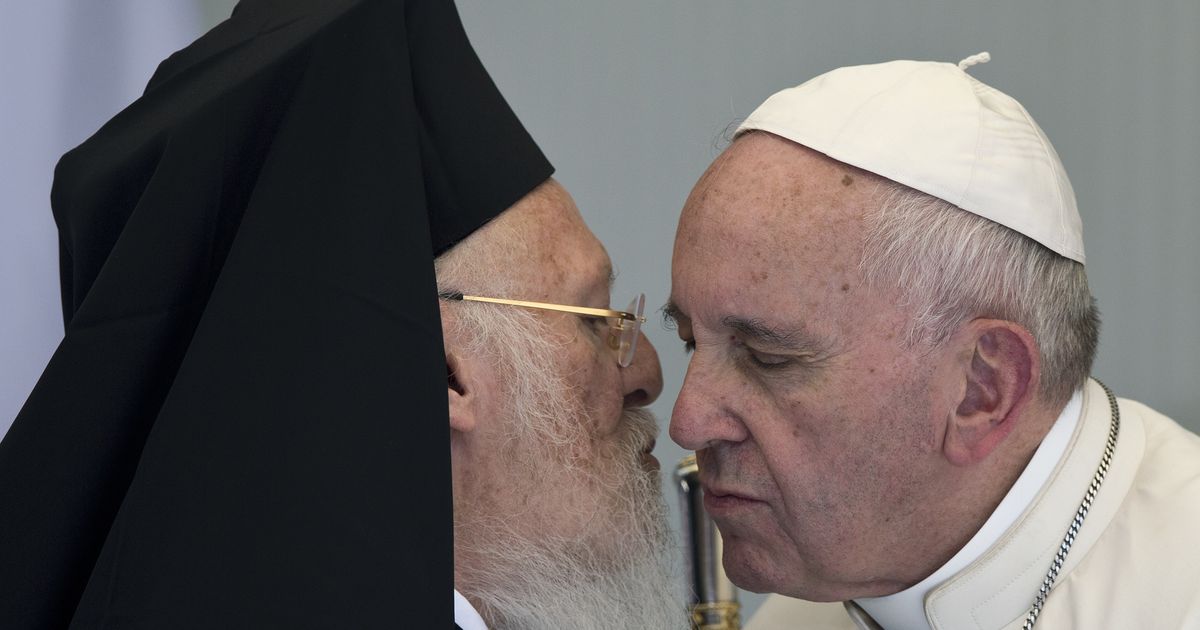
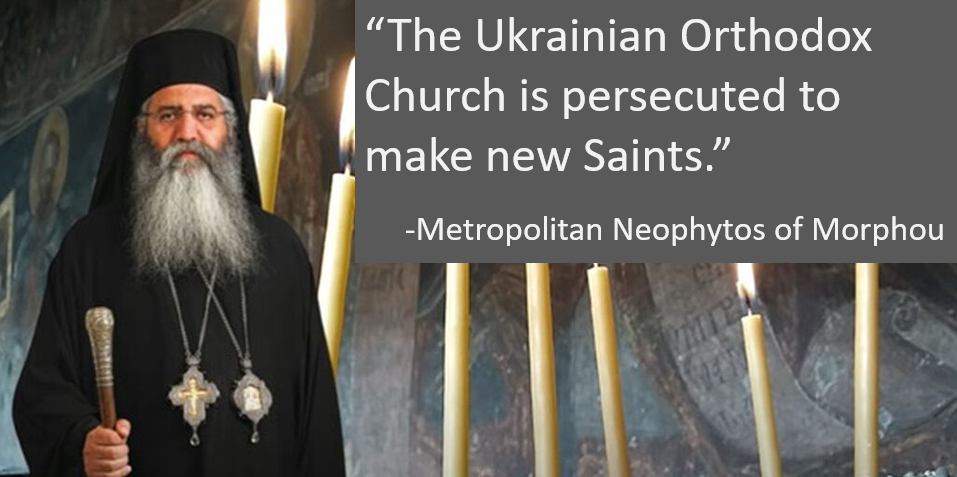

























 Fr. Peter Heers is an Orthodox priest, blogger, podcaster, author, publisher, and conference speaker. In modern America, he attracts controversy like few Orthodox clergy. Fr Peter was vehemently against COVID vax mandates, against the vaxes themselves for their connection to abortion, against the lockdowns, church closures, changes to liturgical practices, against transgenderism, against gay rights, against the US-backed
Fr. Peter Heers is an Orthodox priest, blogger, podcaster, author, publisher, and conference speaker. In modern America, he attracts controversy like few Orthodox clergy. Fr Peter was vehemently against COVID vax mandates, against the vaxes themselves for their connection to abortion, against the lockdowns, church closures, changes to liturgical practices, against transgenderism, against gay rights, against the US-backed 








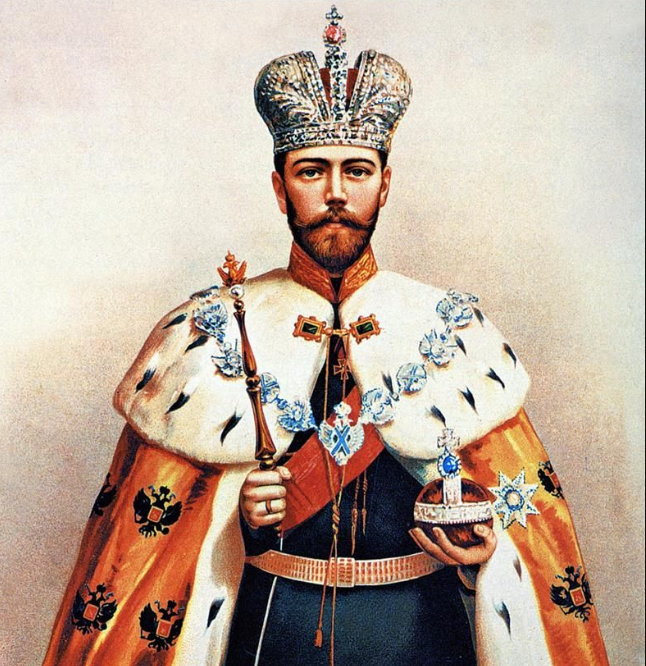



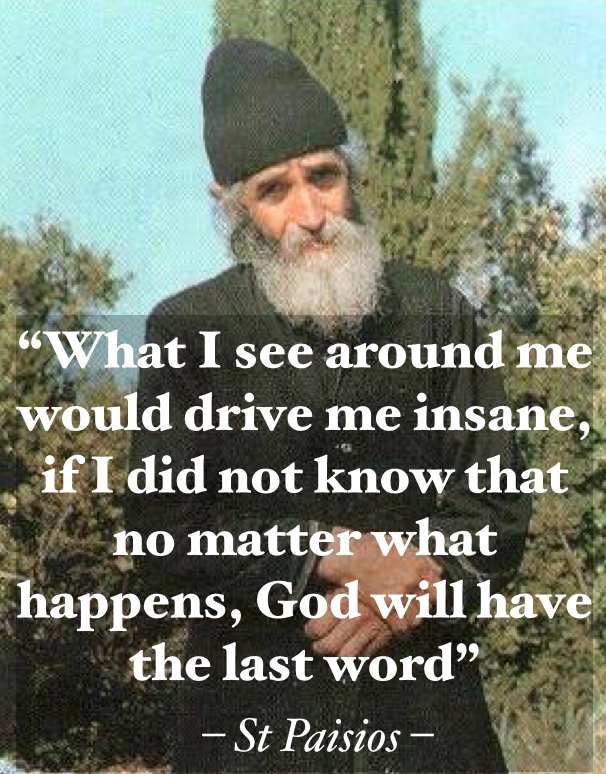










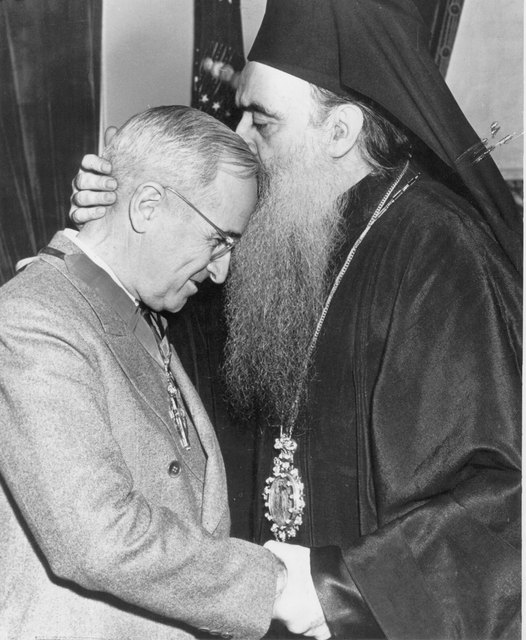




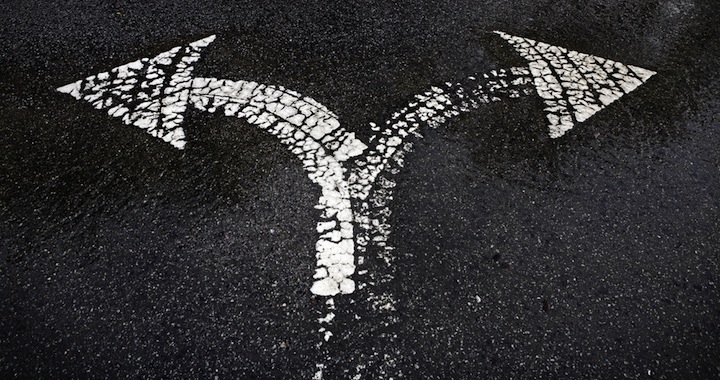







 The most important thing to remember for Christians, Orthodox or otherwise, is that sanctions always hurt the poor and middle class the most. That includes millions of children and senior citizens on fixed incomes. We just went through years of moralizing by clergy / theologians on wearing masks, closing churches, limiting attendance, changing liturgical practices, and enforcing social distancing to protect “the least of these” from COVID-19. Where are all these “wear a mask” servants of God as we face food shortages, fuel shortages, a lack of many basic necessities, possible starvation in places heavily dependent on imported food and fertilizers, ruinous inflation, shortages of manufacturing raw materials, massive jobs losses, millions sliding into poverty, the possible end of the current world financial system, and the largest drop in standard of living ever recorded? Are they advocating for their flocks? Not at all. They are focused on condemning Russians who don’t care, while studiously ignoring the ruination wrought by our own governing elite even as they plot to overthrow Christ’s Church.
The most important thing to remember for Christians, Orthodox or otherwise, is that sanctions always hurt the poor and middle class the most. That includes millions of children and senior citizens on fixed incomes. We just went through years of moralizing by clergy / theologians on wearing masks, closing churches, limiting attendance, changing liturgical practices, and enforcing social distancing to protect “the least of these” from COVID-19. Where are all these “wear a mask” servants of God as we face food shortages, fuel shortages, a lack of many basic necessities, possible starvation in places heavily dependent on imported food and fertilizers, ruinous inflation, shortages of manufacturing raw materials, massive jobs losses, millions sliding into poverty, the possible end of the current world financial system, and the largest drop in standard of living ever recorded? Are they advocating for their flocks? Not at all. They are focused on condemning Russians who don’t care, while studiously ignoring the ruination wrought by our own governing elite even as they plot to overthrow Christ’s Church.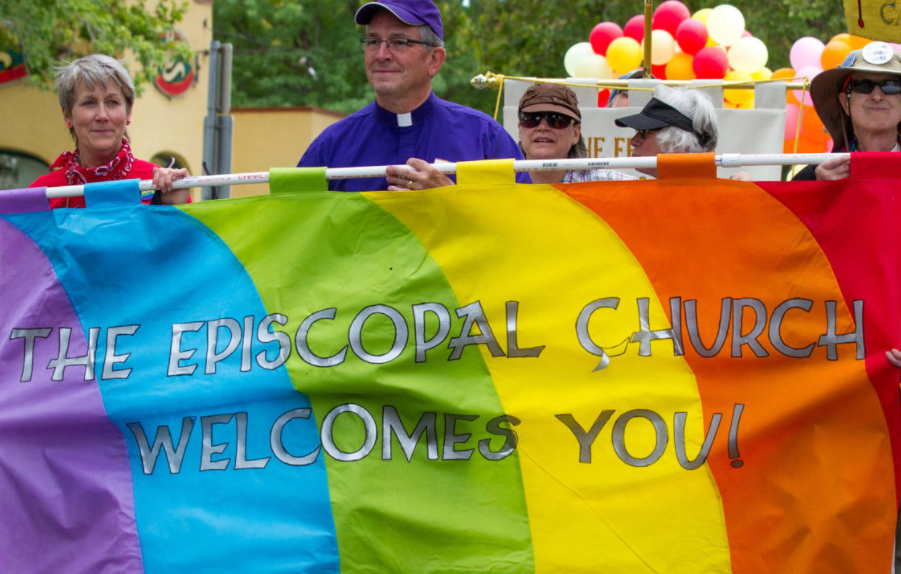
 Three of the “Philadelphia Eleven”
Three of the “Philadelphia Eleven” Bp. Vicky Imogene Robinson
Bp. Vicky Imogene Robinson Pride Month at St. Bart’s Episcopal Church, Manhattan
Pride Month at St. Bart’s Episcopal Church, Manhattan

 Patriarch Bartholomew & Archbishop Elpidophoros
Patriarch Bartholomew & Archbishop Elpidophoros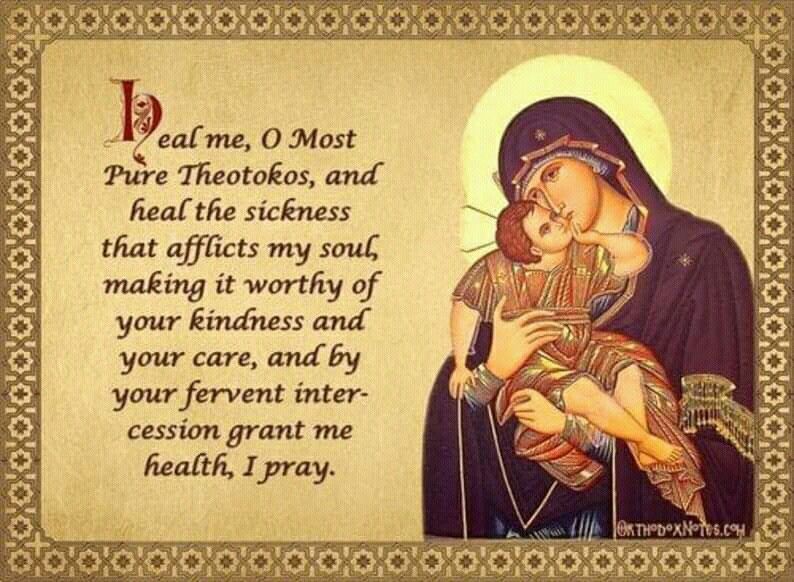
 Among the many things we learn, from the Holy Mother of God, is the sacredness of the body. Singing her praise, we declare she provided the “most pure body.” But what does this mean? What does it mean for us as modern believers?
Among the many things we learn, from the Holy Mother of God, is the sacredness of the body. Singing her praise, we declare she provided the “most pure body.” But what does this mean? What does it mean for us as modern believers? Many saints were “wonderworkers” or healers. Many utilized herbal medicines to cure. There was a wisdom we seem to have lost that brought health and healing through prayer, diet, fasting, physical anointing, and through
Many saints were “wonderworkers” or healers. Many utilized herbal medicines to cure. There was a wisdom we seem to have lost that brought health and healing through prayer, diet, fasting, physical anointing, and through 
 Everything about the Orthodox Faith is multi-generational. As the world has squeezed God’s people into its model of fathers (and mothers) working outside the home, among the faithful this has become a big problem because it impedes generational transfer of the faith.
Everything about the Orthodox Faith is multi-generational. As the world has squeezed God’s people into its model of fathers (and mothers) working outside the home, among the faithful this has become a big problem because it impedes generational transfer of the faith. They asserted, however, that the sum and substance of their fault or error had been that they were accustomed to meet on a fixed day [Sunday] before dawn and sing responsively a hymn to Christ as to a god, and to bind themselves by oath [Latin: sacramentum], not to some crime, but not to commit fraud, theft, or adultery, not falsify their trust, nor to refuse to return a trust when called upon to do so. When this was over, it was their custom to depart and to assemble again to partake of food—but ordinary and innocent food [agape meal]. (Pliny to Trajan, brackets added).
They asserted, however, that the sum and substance of their fault or error had been that they were accustomed to meet on a fixed day [Sunday] before dawn and sing responsively a hymn to Christ as to a god, and to bind themselves by oath [Latin: sacramentum], not to some crime, but not to commit fraud, theft, or adultery, not falsify their trust, nor to refuse to return a trust when called upon to do so. When this was over, it was their custom to depart and to assemble again to partake of food—but ordinary and innocent food [agape meal]. (Pliny to Trajan, brackets added). Everything that can be shaken will be shaken (Hebrews 12:27 para). Obviously, many Orthodox jurisdictions are being shaken. And as things are shaking out, what is being revealed is who can be
Everything that can be shaken will be shaken (Hebrews 12:27 para). Obviously, many Orthodox jurisdictions are being shaken. And as things are shaking out, what is being revealed is who can be